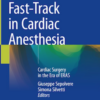Host Endothelial, Epithelial and Inflammatory Response in ICU COVID-19 Patients
ccforum.biomedcentral.comThese studies demonstrate that, unlike other well-studied causes of critical illness, endothelial dysfunction may not be characteristic of severe COVID-19 early after ICU admission. Pathways resulting in elaboration of acute phase proteins and inducing epithelial cell injury may be promising targets for therapeutics in COVID-19.
We prospectively enrolled 171 ICU patients, including 78 (46%) patients positive and 93 (54%) negative for SARS-CoV-2 infection from April to September, 2020. We compared 22 plasma biomarkers in blood collected within 24 h and 3 days after ICU admission.
In critically ill COVID-19 and non-COVID-19 patients, the most common ICU admission diagnoses were respiratory failure or pneumonia, followed by sepsis and other diagnoses.
Similar proportions of patients in both groups received invasive mechanical ventilation at the time of study enrollment. COVID-19 and non-COVID-19 patients had similar rates of acute respiratory distress syndrome, severe acute kidney injury, and in-hospital mortality.
While concentrations of interleukin 6 and 8 were not different between groups, markers of epithelial cell injury (soluble receptor for advanced glycation end products, sRAGE) and acute phase proteins (serum amyloid A, SAA) were significantly higher in COVID-19 compared to non-COVID-19, adjusting for demographics and APACHE III scores.

















